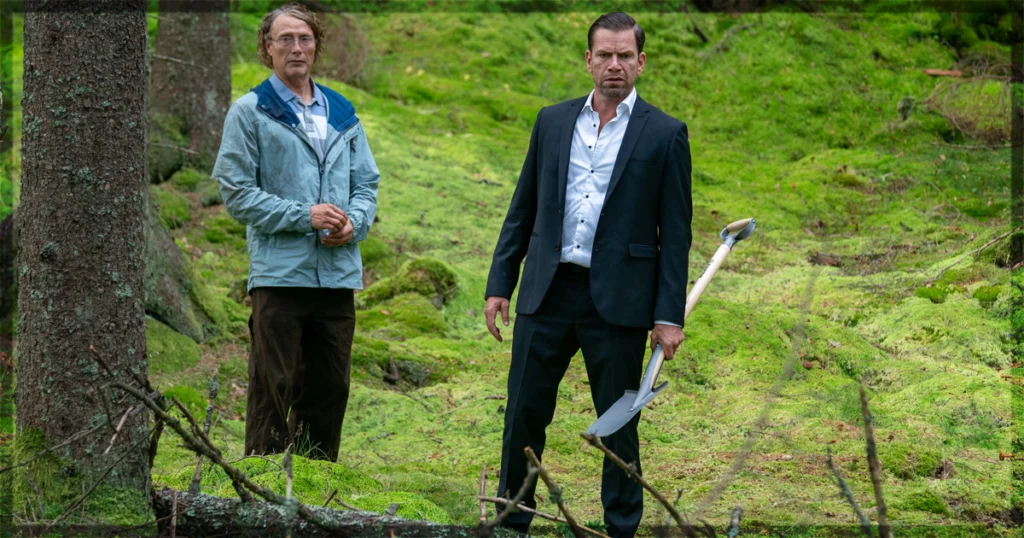In 2021 a small French movie called The World After Us played the festival circuit because it was one of the first modern movies to address life in the modern gig economy. It was a direct precursor to At Work, in that they are both about a novelist in Paris doing gig work. However The World After Us is a love story, while At Work is about one man’s single-minded determination to live life on his own terms. It features an excellent central performance from Bastien Bouillon and the screenplay by Valerie Donzelli, who also directed, won the Best Screenplay prize at the Venice Film Festival. This means the movie is almost certainly going to get a wider international audience than even the Ken Loach gig economy feature from 2019, Sorry We Missed You. And this is because At Work’s seriousness about art mitigates its criticism of everything else about the modern moment.
Paul (Mr. Bouillon) is in his early forties with two adult children, though they are moving to Montreal with their mother, his very new ex-wife, leaving him alone in Paris. Paul was a photographer and a successful one but now he no longer has a family to support he’s decided to go all in on attempting to write a novel. No one can believe he’s walking away from middle-class comfort to do this, so it’s a family friend who lends Paul a small studio apartment. Paul sells his cameras, runs down his savings and eventually signs up for one of those gig apps, where workers bid on doing manual tasks like repotting plants or washing windows or hanging pictures or building flatpack furniture. The lowest bidder always wins and the five star feedback system is arbitrary and unfair, but it’s money for food, money for electricity to power the laptop. And Paul chose this, so he never complains, and puts his back into it.
His adventures around Paris, where he meets the lazy, the entitled, the louche and most memorably other people struggling as much as he is, are a fascinating slice of life most movies never bother to pay attention to. Who wonders about the person circulating drinks at a party or hauling rubble to a dumpster when they know where their own next paycheck is coming from? If paying twenty euros for someone to help you dismantle some furniture is so stressful you collapse in tears on the stairs, what happened for your finances to be so tight? But if we as a society are meant to care about the dignity of work and ensure that everyone enjoys certain standards of protection, how have such unregulated sidelines become so mainstreamed and sometimes the only jobs available?
The main surprise of the film, which may be an elision from the novel by Franck Courtès on which the movie is based, is that based on basic math, Paul and his ex became parents straight out of high school. Despite this, they cohered as a family for decades and had a pretty nice middle-class time. In very many cultures right now this is just not possible; having kids before you’ve established your value as a worker under capitalism is often the first step into a life of poverty. In fact these days in big cities you’re more likely to see people in their early forties with toddlers instead of grown sons getting internships in world-famous banks. So the fact this is never even referred to is strange, but it’s pretty clear Paul is not trying to recapture a lost youth. It seems the compulsion to write has been rising for some time and the collapse of his family was the final push he needed to commit to it. But is all this hard work worth it?
Mr. Bouillon, who had two movies at this year’s Cannes Film Festival, Connemara and Leave One Day, in which he played the heroine’s old hometown boyfriend, is here wholly believable as a city intellectual in embarrassed circumstances. His clear determination that he has made the right choice and his calm willingness to turn his hand to whatever is required is quietly compelling. On consideration this is a love story after all, about a man’s love of literature and his determination to do whatever it takes to become part of it. And since movies which have such respect for hard work like this are so rare anywhere in the world, let’s hope the boost from Venice will enable At Work to be seen as widely as possible.
At Work (À pied d’oeuvre) recently played at the Venice Film Festival.
Learn more about the film at the Venice site for the title.


